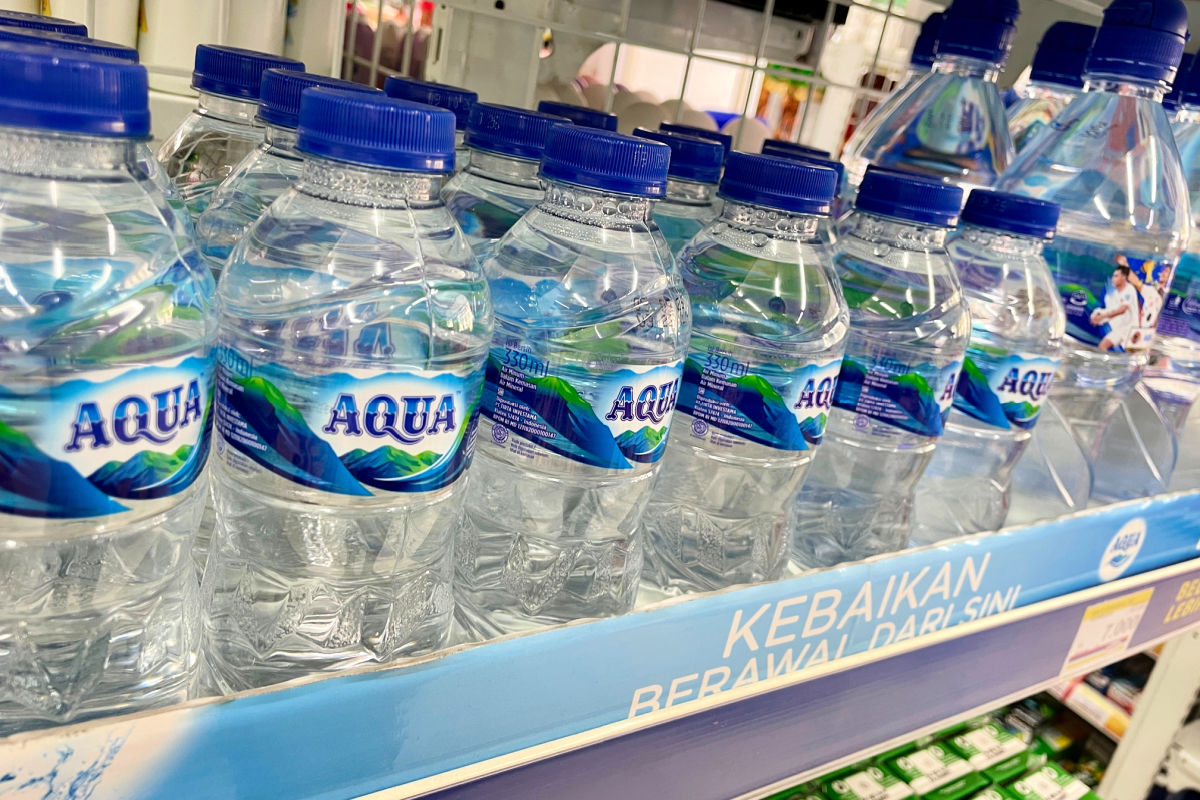Bali’s Plastic Bottle Ban Faces Pushback Amid Tourism Concerns
DENPASAR, Indonesia – A sweeping ban on single-use plastics in Bali, Indonesia, aimed at preserving the island’s famed natural beauty, is encountering resistance from policy advisors and academics who fear unintended consequences for the tourism-dependent economy and local traditions. Announced by Bali Governor Wayan Koster as part of the “Bali Waste Clean-Up Movement,” which formally took effect April 11, 2025, the policy specifically targets single-use plastic water bottles under one liter.the initiative, outlined in Circular letter Number 9 of 2025, places increased obligation on businesses, particularly those in the tourism sector, to manage their waste effectively. Businesses failing to comply face potential fines and even the revocation of their operating licenses, according to Koster.
However, the ban on small plastic water bottles is drawing criticism, with some arguing that the policy was implemented too hastily.
Dr. I Nyoman Subanda, an academic and public policy observer from the National Education University, Undiknas in Denpasar, expressed concerns about the lack of comprehensive research.”I agree with the Governor’s enthusiasm to reduce plastic waste,” Dr. Subanda told reporters. “However, this kind of policy must go through an in-depth study. It needs to be seen first, is it true that small drinking water packaging is the biggest contributor to waste? Or are there other types of plastic waste that are more dominant such as plastic bags or sachets.”
Subanda added, “Policies should not be made in a hurry. There must be socialization first,accompanied by supporting resources and funds. Otherwise, the implementation will be chaotic.” He emphasized the need for adequate preparation and resources for businesses and communities to adapt to the changes. “If the village or hamlet does not support [this policy], it will not be effective. The provincial government cannot go alone.”
The ban’s impact extends beyond environmental concerns, potentially affecting cultural practices and the livelihoods of local businesses. Small bottled water plays an important role in the current prevalence of conventional activities. Concerns have been raised as to potential impacts on availability and affordability of drinking water for locals and tourists alike.
“Small bottled water is very much needed during traditional activities involving many residents,” Dr. Subanda explained. “If it is prohibited, the community will have difficulties. This means that the policy is not yet in line with the needs of the village community.”
The economic consequences for businesses reliant on the sale of small bottled water are also a concern. “Business people who have been relying on their businesses from small bottled drinking water will certainly suffer losses,” Dr. Subanda warned. “They have employees who must also be provided with a living. So there must be negotiations and solutions from the provincial government.”
Addressing the Counterargument
While critics acknowledge the potential negative consequences of the ban, advocates argue that the long-term environmental benefits outweigh the short-term disruptions. They point to the urgent need to address Bali’s plastic waste crisis, which threatens not only the island’s natural beauty but also its tourism industry. Reusable water bottles and other enduring solutions are touted as environmentally sound alternatives that can create opportunities for eco-conscious businesses.
Moreover, proponents argue that the ban can incentivize innovation in the packaging industry, leading to the progress of biodegradable or compostable alternatives. The transition may be difficult, but the potential for a cleaner, more sustainable Bali is worth the effort.
Lessons for the U.S.
The situation in Bali holds valuable lessons for U.S. communities grappling with similar plastic waste challenges.Several U.S. cities and states have implemented or are considering bans on single-use plastics,including plastic bags,straws,and polystyrene containers. The Balinese experience highlights the importance of community engagement,comprehensive research,and adequate support for businesses when implementing such policies.
The success of any plastic reduction initiative hinges on a collaborative approach that considers the needs and concerns of all stakeholders. As Dr. Subanda advises,”The discussion should not only be in the government room. It must involve all parties: the community, academics, and entrepreneurs. Don’t just force policies from above.”
FAQ: bali’s Plastic Bottle Ban
What exactly is the plastic bottle ban in Bali? The ban prohibits the sale and use of single-use plastic water bottles under one liter in capacity. The policy is part of the broader “Bali Waste Clean-Up Movement,” which aims to reduce plastic waste and protect the environment.
When did the ban go into effect? The Bali Waste Clean-Up Movement, including the ban, formally took effect on April 11, 2025. Why are people criticizing the ban? Critics argue that the ban was implemented too hastily without sufficient research or community consultation. They also raise concerns about the impact on local businesses, traditional cultural practices, and access to affordable drinking water.
What are the alternatives to single-use plastic bottles? Alternatives include reusable water bottles, water refill stations, and larger-sized water containers. Some businesses are also exploring biodegradable or compostable packaging options.
* What can tourists do to support Bali’s waste reduction efforts? Tourists can bring their own reusable water bottles, refill them at available stations, and support businesses that are committed to sustainable practices.
How might Bali’s plastic bottle ban influence the decisions of tourists who are accustomed to single-use plastic convenience?
Table of Contents
- 1. How might Bali’s plastic bottle ban influence the decisions of tourists who are accustomed to single-use plastic convenience?
- 2. Bali’s Plastic Bottle Ban: An Interview with Dr. I Nyoman Subanda on Tourism and Sustainability
- 3. Concerns regarding Policy Implementation and Community Impact
- 4. Economic Repercussions for Businesses
- 5. Weighing Environmental Benefits Against Economic Challenges
- 6. A Collaborative Approach is Key
Bali’s Plastic Bottle Ban: An Interview with Dr. I Nyoman Subanda on Tourism and Sustainability
Archyde: Welcome, Dr. Subanda. Thank you for joining us to discuss Bali’s recently implemented ban on single-use plastic water bottles. could you start by giving us your perspective on the ban’s overall impact on the local community and tourism sector?
Dr. I Nyoman Subanda: Thank you for having me. From my perspective, the intentions behind the ban are certainly commendable. Reducing plastic waste is crucial for Bali’s surroundings and its appeal as a tourist destination. However, the speed at wich it was implemented has presented some significant challenges. We need to consider the economic impacts on local businesses relying on the sale of these bottles and, more importantly, how the policy will affect traditional practices.
Concerns regarding Policy Implementation and Community Impact
Archyde: You’ve raised concerns about the policy’s implementation. Can you elaborate on the specific areas of the ban that are causing the most concern, particularly related to local practices?
Dr. I Nyoman Subanda: Certainly. One key area is the availability of drinking water, especially during traditional ceremonies and activities. Small bottled water is often essential for these events. If it suddenly becomes unavailable or significantly more expensive,it creates difficulties for the community. Another crucial point is related to the limited research. I feel certain that the ban ought to rely more on data that truly identifies the biggest plastic waste contributors. Perhaps it’s not single-use water bottles,but rather plastic bags and sachets. And, of course, thorough communication, with extensive pre-implementation support, is critically.Without it,its effectiveness and acceptance are seriously threatened.
Economic Repercussions for Businesses
Archyde: What about the financial implications for the local businesses and the tourism industry? How will this ban potentially affect them?
Dr. I Nyoman Subanda: Businesses that have built their revenue on the sale of small bottled water may suffer losses, potentially affecting the livelihoods of their employees. The provincial government needs to work with these businesses to find viable solutions. This could involve exploring choice packaging, providing financial support, or offering training programs. It is indeed a balancing act that must take into account the health of the island and its people.
Weighing Environmental Benefits Against Economic Challenges
Archyde: Proponents of the ban argue that the longer-term environmental benefits outweigh the immediate disruptions.What are your thoughts on that?
Dr. I nyoman Subanda: I believe that we must have a more nuanced approach. While the environmental benefits are undeniable, the implementation should be gradual and coupled with significant support for communities and businesses. The shift towards refillable bottles and other long-term alternatives is imperative, but there needs to be strong community engagement in its direction.
A Collaborative Approach is Key
Archyde: What key recommendations would you give concerning the way forward?
Dr. I Nyoman Subanda: The discussion should not only be within the rooms of the government. It must involve all parties: the community, academics, business owners, and entrepreneurs. We need collaborative strategies to ensure the transition is as seamless and beneficial as possible.
Archyde: Dr. Subanda, thank you for your time and your insightful perspectives. It’s clear that careful planning and continued conversation are key to ensuring the success of this initiative. Considering Bali relies heavily on tourism, what will be the affect on new tourists and their choice to visit the island, as people are creatures of habits? Leave your thoughts in the comments below!








